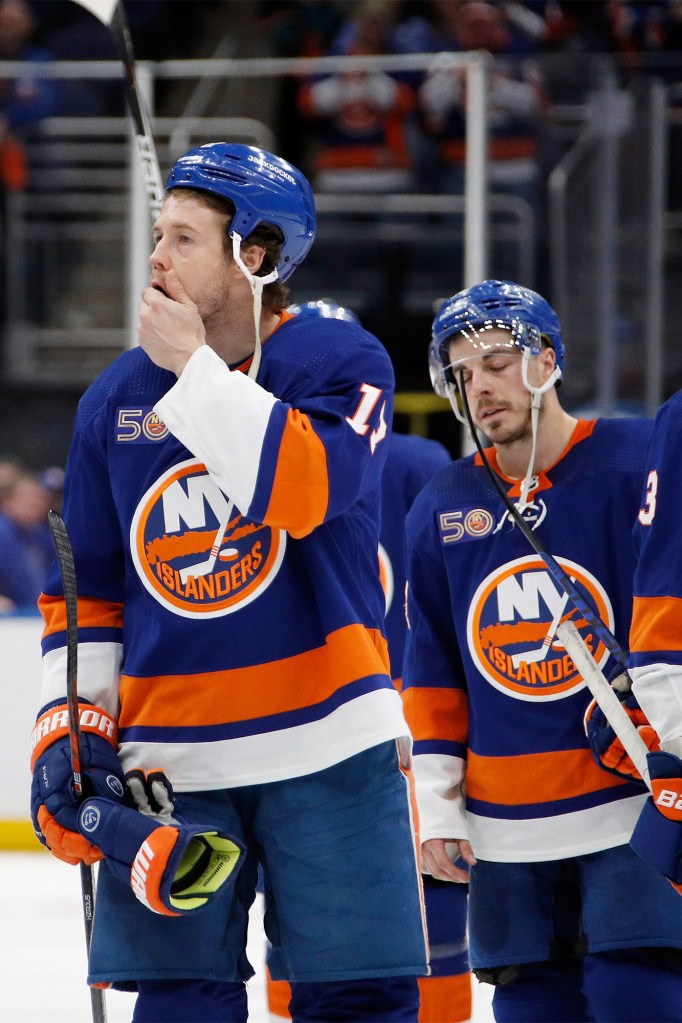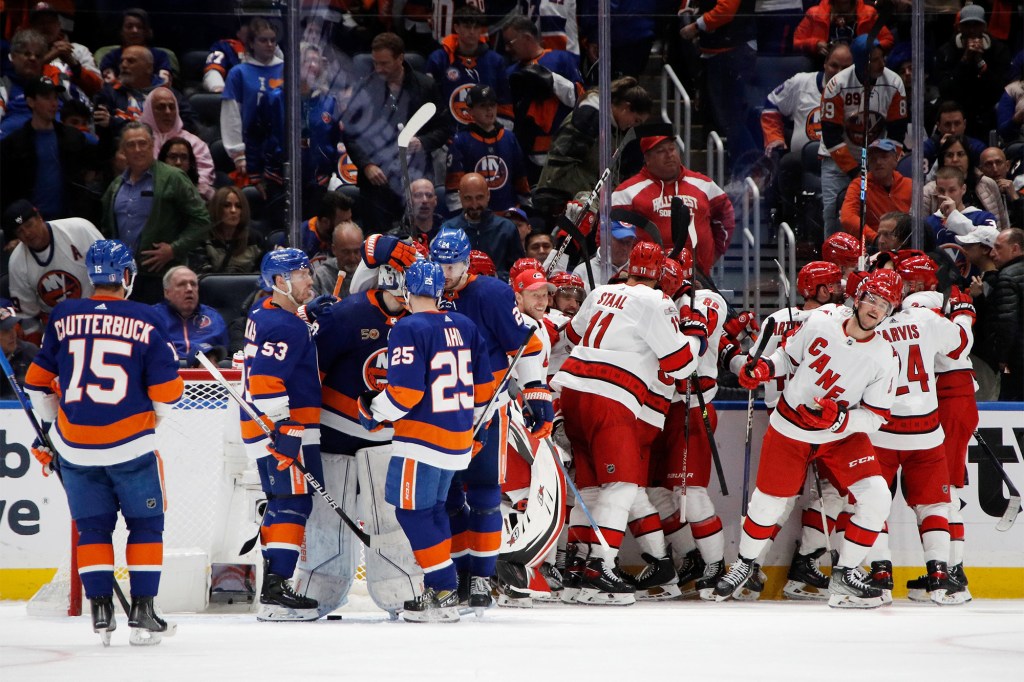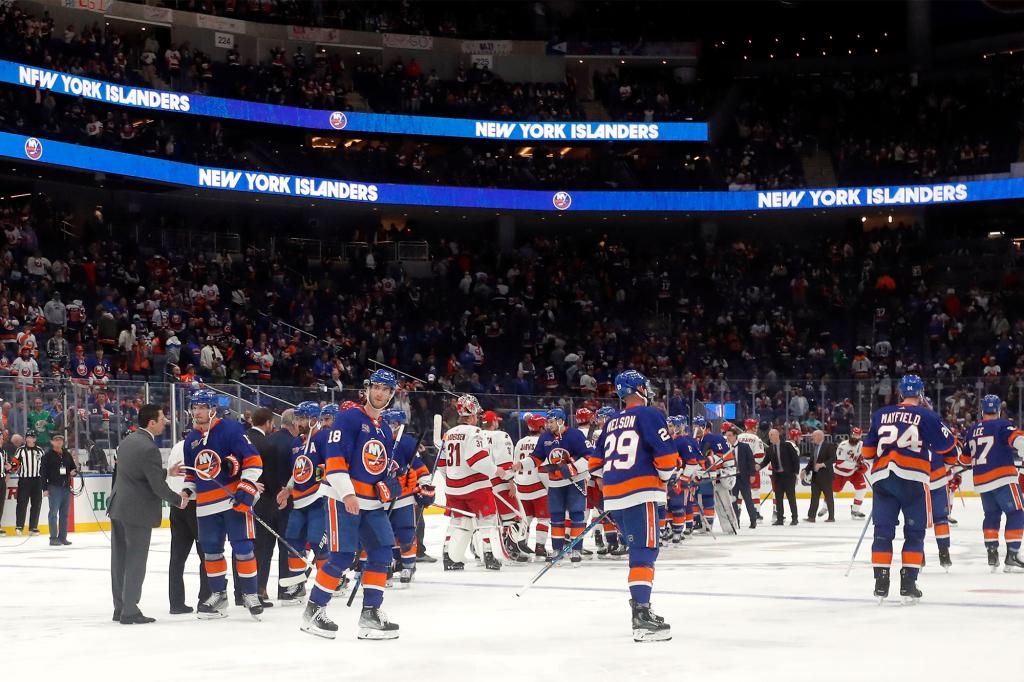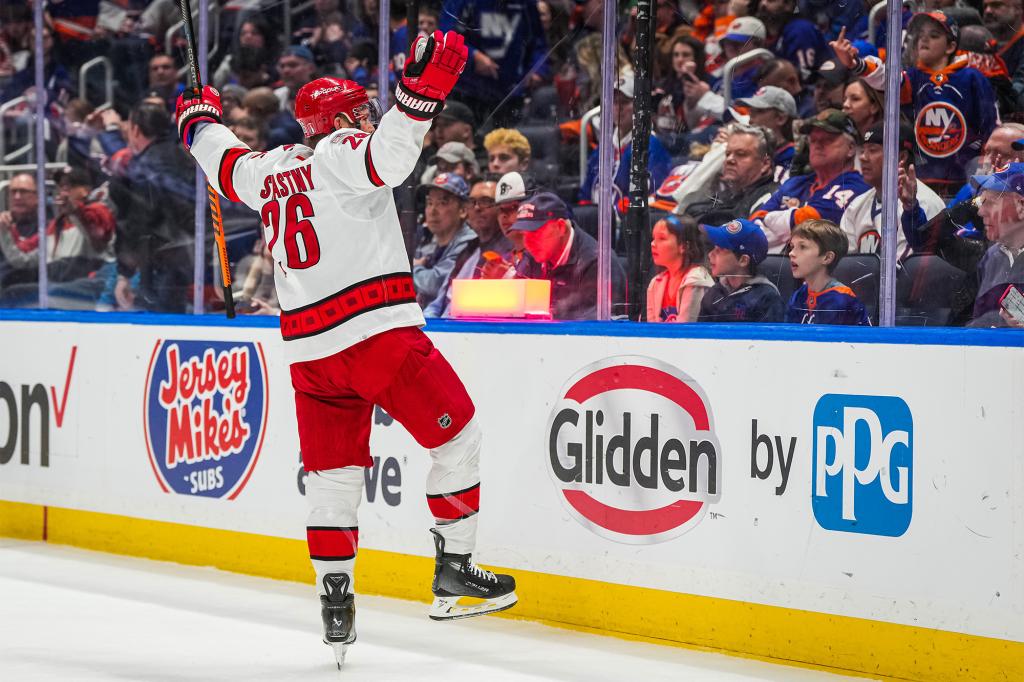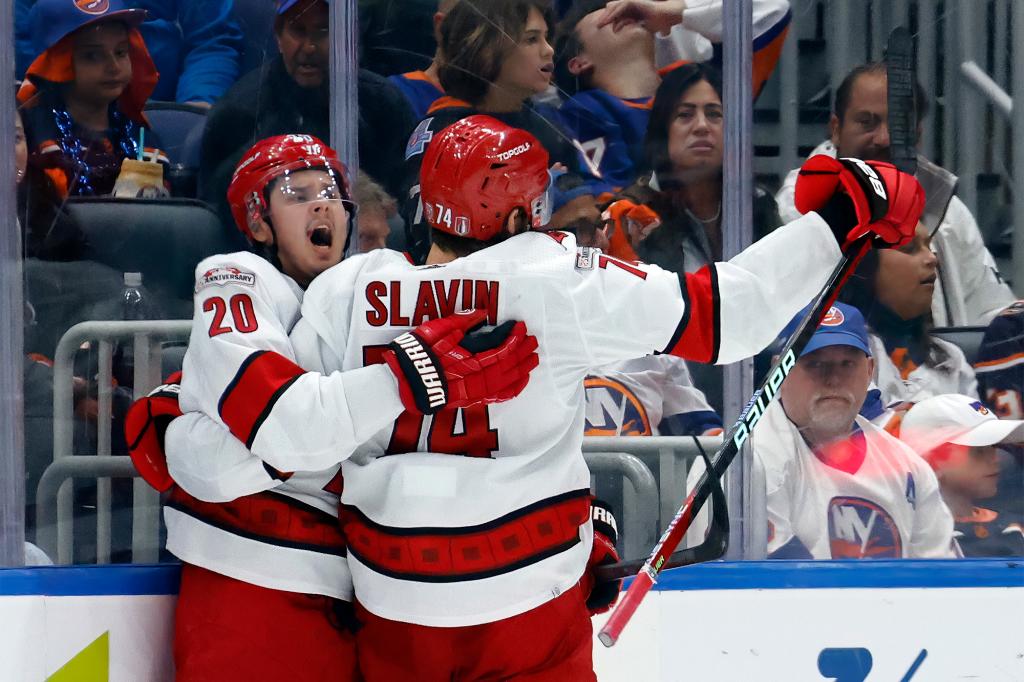As the Islanders skated off the UBS Arena ice on Friday, handshake lines finished and last vestiges of the crowd clearing out, the reality in front of them was clear as day.
They had lost a winnable Game 6, 2-1 to the Hurricanes on home ice with Paul Stastny ending their season in overtime.
They had lost a winnable series, blowing leads in both Game 2 and Game 6 that will haunt them for the entire offseason.
And they might have lost their best chance of an extended playoff run with this core of players.
“One-goal leads in the playoffs are just not safe,” Mathew Barzal said in a dead-quiet locker room, repeating a mantra the Islanders learned in the first round to their chagrin.
As the puck dropped on the third period Friday, the Islanders held a 1-0 lead that belied their near-complete control of proceedings.
This was not Ilya Sorokin holding up the sky, as he’d done in Game 5.
This was the Islanders getting to their game, holding the puck below the hash marks and winning battles along the walls, doing what they do best.
And then they stopped.
Bizarrely, the Islanders came out for the third period with little jump and seemingly little desire to do anything but defend.
Suddenly, Sorokin was being asked to do everything.
And with 10:36 to go, Carolina knocked the door down as Sebastian Aho got on a rebound to tie the game at one.
At that point, shots in the period were 12-3 in favor of the Hurricanes, and the Islanders could not regain the momentum.
“Sometimes when you’re trying to hold on, it doesn’t work well,” Barzal said. “I think the first two periods, we were playing aggressive. In the third period, we kind of sat back and just wanted to clog it up and make it hard. Sometimes when you do that, it can go the other way. That was it, really.”
A dejected Lane Lambert, his voice hoarse, admitted that his team just didn’t do enough in the final 20 minutes of regulation.
“I certainly felt like we could’ve been more on our toes,” he said. “I didn’t think we established our forecheck in the third. As a result, we were on our heels more than we needed to be. There’s no question about that.”
The Islanders pulled themselves together enough to force overtime but couldn’t turn the game back around in the extra period, as Stastny ended their season on a sharp-angle shot that got by Sorokin following Adam Pelech’s turnover at the blue line.
Against a goaltender who hadn’t played in two weeks, Frederik Andersen, getting shots on the board early was critical and the Islanders did just that.
At 9:21 of the first period, with Carolina caught out in the midst of a line change, Cal Clutterbuck ripped a right-circle wrist shot past Andersen for a 1-0 lead.
The second period was an onslaught — one the Islanders will wonder how they failed to score during for a long, long time.
They outshot Carolina 19-10, buzzing around the crease as Brock Nelson, Zach Parise and Clutterbuck all recorded near-misses.
Failing to take full advantage of that opportunity, ultimately, lost the Islanders the game and sent them home early.
The consequence is four long months in which the organization will be confronted with a mirror and asked to tell itself the truth.
During the regular season, the Islanders went 42-31-9 — winning just two more games than they lost — and made the playoffs with the lowest point total of any Eastern Conference team since the 2013-14 Red Wings.
The same deficiencies that dogged them all season brought them down quickly in the playoffs: a lack of offensive firepower, an anemic power play, a struggle to play a complete 60 minutes.
Is that enough to convince you this roster can contend for a Stanley Cup as currently constructed?
More importantly, is it enough to convince general manager Lou Lamoriello as well as co-owners Jon Ledecky and Scott Malkin?
The Islanders need more mobility on the back end.
They need more of a presence in front of the net.
They need a team for whom scoring a goal is not an ordeal and a power play that clears the bar of basic competency.
At times this season, the Islanders showed an ability to contend with the league’s best teams, a resilience late in games and a defensive structure that proved hard to break down.
They made the playoffs for a reason. Some of the pieces are here.
But enough of them?
It’s pretty hard to make that case.
And whether or not the Islanders try to do so should tell the fan base a whole lot.
“Longer you’re in this league, the more you realize [how hard] it is to win,” Matt Martin said. “Every time you have an opportunity, you try to make the best of it. But it sucks. We’ll wear this one for a little while.”


